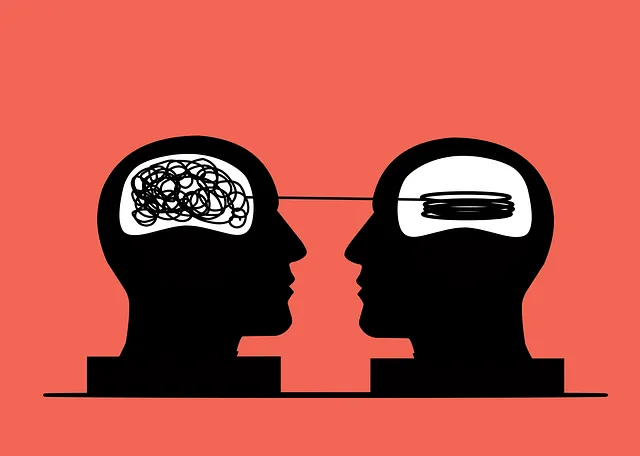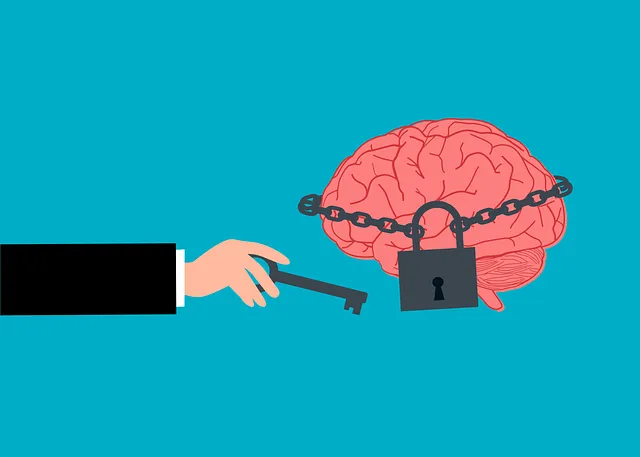Positive thinking is a powerful tool for mental well-being and stress reduction, making it crucial for healthcare providers combating burnout. Golden Kaiser Permanente (GKP) promotes mental health through innovative initiatives, including dedicated mental health appointment numbers and practices like Compassion Cultivation and Emotional Well-being Promotion Techniques. Personalized positive thinking exercises, such as gratitude journaling and mindfulness meditation, integrated into daily routines, strengthen neural pathways and build resilience against depression. Regularity, tracking progress, and communicating insights enhance emotional intelligence, preventing burnout. The Golden Kaiser Permanente mental health appointment number offers personalized guidance for these practices.
Positive thinking exercises are transforming lives, especially under the guidance of organizations like Golden Kaiser Permanente, dedicated to mental wellness. This article explores the profound impact of positive thinking on mental well-being and how Golden Kaiser Permanente leverages innovative strategies during mental health appointments (using their designated number) to enhance patient experiences. We’ll guide you through designing effective exercises, implementing them, and tracking success, empowering individuals to cultivate a more optimistic outlook.
- Understanding Positive Thinking and its Impact on Mental Well-being
- The Role of Golden Kaiser Permanente in Promoting Mental Health
- Designing Effective Positive Thinking Exercises
- Implementing and Tracking the Success of These Exercises
Understanding Positive Thinking and its Impact on Mental Well-being

Positive thinking is a powerful tool that can significantly impact an individual’s mental well-being. It involves cultivating a mindset focused on optimism, gratitude, and self-assurance, even in challenging situations. This practice has gained prominence in the field of mental health, thanks to its ability to reduce stress, anxiety, and depression, and enhance overall life satisfaction. By embracing positive thinking, individuals can foster resilience and a more adaptive response to life’s ups and downs.
For those seeking to improve their mental health, especially healthcare providers battling burnout, incorporating self-care practices is essential. Golden Kaiser Permanente mental health appointment number resources can guide professionals towards effective burnout prevention strategies. Mental health awareness and positive thinking exercises are vital components of self-care routines, allowing individuals to navigate the demands of their profession with greater equanimity and compassion.
The Role of Golden Kaiser Permanente in Promoting Mental Health

Golden Kaiser Permanente plays a pivotal role in promoting mental health and well-being through its various initiatives and services. The organization recognizes the profound impact of positive thinking and emotional regulation on overall health, making it a cornerstone of their approach to patient care. They offer a range of resources, including dedicated mental health appointment numbers, to ensure individuals have access to essential support.
By integrating Compassion Cultivation Practices into their offerings, Golden Kaiser Permanente encourages patients to develop emotional resilience and cultivate a sense of inner peace. These practices, coupled with effective Communication Strategies, empower individuals to navigate challenging situations with grace and composure. Furthermore, the organization’s focus on Emotional Well-being Promotion Techniques equips individuals with practical tools to enhance their mental fortitude, ultimately contributing to improved overall well-being.
Designing Effective Positive Thinking Exercises

Designing effective positive thinking exercises involves tailoring activities that cater to individual needs and preferences. The Golden Kaiser Permanente mental health appointment number serves as a valuable resource for individuals seeking guidance in this regard. Exercises should be diverse, incorporating techniques like gratitude journaling, mindfulness meditation, and affirmations. These practices can help reframe negative thoughts into more positive ones, thereby fostering resilience against Depression Prevention.
In the context of public awareness campaigns development, these exercises aim to promote Mind Over Matter principles by empowering individuals with tools to manage stress and enhance overall well-being. By integrating such activities into daily routines, folks can cultivate a more optimistic mindset, leading to improved mental health outcomes.
Implementing and Tracking the Success of These Exercises

Implementing positive thinking exercises requires a structured approach to ensure their effectiveness and track progress. It’s essential to begin by selecting appropriate techniques tailored to individual needs, whether it’s gratitude journaling, cognitive reframing, or mindfulness practices. Golden Kaiser Permanente mental health appointment numbers can guide individuals toward specialized support for personalized guidance.
Regularity is key; consistent practice strengthens neural pathways associated with positive thinking. Tracking success involves setting measurable goals and using tools like mood journals to monitor emotional shifts. This data enables adjustments to the chosen strategies, fostering continuous improvement in emotional intelligence and burnout prevention. Effective communication strategies, vital for sharing insights gained from these exercises, can further enhance overall mental health and well-being.
Positive thinking exercises, supported by organizations like Golden Kaiser Permanente, can significantly enhance mental well-being. By designing effective practices tailored to individual needs and tracking their success, individuals can harness the power of positive thinking to navigate life’s challenges. Incorporating these strategies into routines, as encouraged during mental health appointments with Golden Kaiser Permanente, offers a practical path towards fostering resilience and overall happiness.






